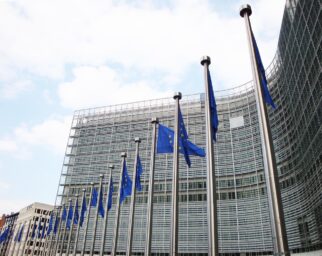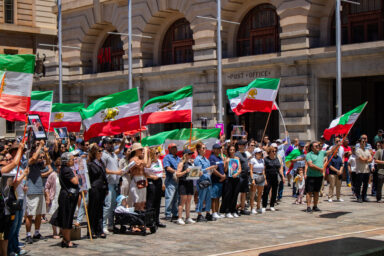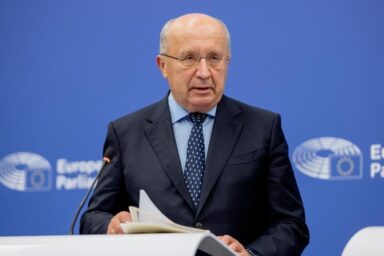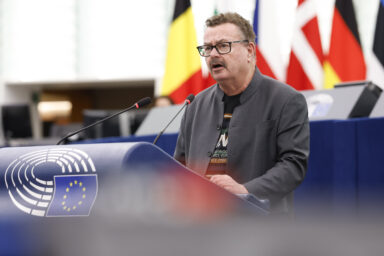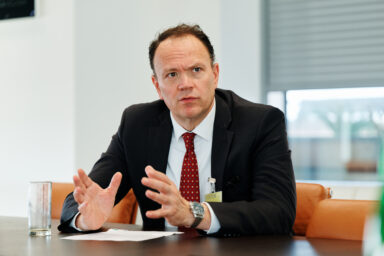The European Parliament’s Committee on Budgets has voiced strong opposition to budgetary cuts to various programmes as proposed by the Council of the European Union. The MEPs frequently singled out cuts to EU4Health as the most painful loss.
The Committee on Budgets discussed the EU general 2026 budget during an ordinary meeting on Thursday 4 September. With Chair Johan van Overtveldt (ECR/NDL) missing due to a cycling accident, Vice-Chair Monika Hohlmeier (EPP/DEU) presided over the session.
Servicing expensive debt
Ms Hohlmeier arrived in a jovial mood despite having been stuck in an elevator on her way to the 4B01 room of Brussels‘ Spaak building. She informed the MEPs about her unintended travelling adventure, providing as much excitement as the rest of the session. The 2026 budget debate, the most urgent point of the agenda, tellingly saw half of shadow rapporteurs missing.
MEP Andrzej Halicki (EPP/PLN), co-rapporteur on the committee’s working document on the matter, summed up the positions the Council of the European Union and its Danish presidency adopted on the draft general 2026 budget in July. He specifically mentioned the Council‘s proposed €1.3bn cut in commitments because of the repayment of the cost of the NextGenerationEU (NGEU) programme.
Mr Halicki acknowledged that the situation was very similar to those of previous years. He also admitted that at this point, precise figures are not available. “We will see in October when European Commission sends us the real figures; then we will have better knowledge about that,“ he said.
You might be interested
Budgetary prudence
To finance a part of the overrun cost, the Council is cutting several program allocations. This is important, the rapporteur said, “because we have to protect the flagship programs. The budget lines targeted for reductions include Horizon, Erasmus, and EU4Health,“ he said, before stressing that “we have to not cut any euro on that“.
Further down the road, Mr Halicki mentioned migration, voicing his oppoition to any cuts in the area. “The migration issue has to be continued as it was. We have to remember that the 50-50 benchmark split between available flexibilities in the budget and the euro special instrument is maintained,“ he said. He likened the move to corporate practice which “justifies the approach as budgetary prudence“, but said he would rather not open debate on whether it is actually prudent or not.
We shouldn’t forget that the 2026 budget cannot be a tool for reinforcing trust in the context of uncertainties, such as natural disasters or geopolitical changes. — MEP Andrzej Halicki (EPP/PLN)
The Polish member also took issue with the notion that the general budget funds should cover emergencies. “Beyond debt servicing, we shouldn’t forget that the 2026 budget cannot be a tool for reinforcing trust in the context of uncertainties, such as natural disasters, geopolitical changes, important issues like investment, innovation, health, education, values, and robust crisis response capacity.“
United we stand (or not)
Mr Halicki then stressed that a unified stance would solidify the Parliament’s position in future talks with the other two co-legislators. The point, something of a Brussels evergreen, enjoys frequent mentions and rare factual followup across the bloc’s institutions.
Only two shadow rapporteurs were present. Nils Ušakovs (S&D/LAT) supported the document, opposing “various council reductions across the headings on ground of insufficient justification of the cuts and and the lack of explanation on their impact, particularly in the challenging circumstances the Union finds itself in“.
Mr Ušakovs also complained that the Council “is not respecting the provision in the inter-institutional agreement, which says that efforts to finance NGEU costs should aim at avoiding program cuts when identifying the sources“. He said that the Socialists S&D will support the rapporteur in his intention to reverse the cuts by the council “as a matter of principle“, with the exception of the budget of Frontex. “Even when we factor in the council proposal to reduce the budget by €21m, it still increases by €90m when compared to the 2025 budget,“ the Latvian member remarked.
EU4Health in danger
MEP Stine Posse (Renew/DAN), speaking on behalf of her group, recommended that “common debt be focused and supplemented by genuine own resources in order to avoid pre-empting the budget“. She vouched for “adequate funding for the Connecting Europe energy facility“, vital to the EU‘s strategic interest, and opposed the proposal cut to EU4Health. The latter has already suffered a 20 per cent cut in the MFF revision, she pointed out.
Despite the critical and declining state of European biodiversity, the current budget lands at only 7.8 per cent biodiversity spending, well below the 10 per cent target. — MEP Stine Bosse (Renew/DAN)
Ms Bosse then identified funding gaps on biodiversity as a key issue in the budget. “Despite the critical and declining state of European biodiversity, the current budget lands at only 7.8 per cent biodiversity spending, well below the 10 per cent target. We must increase funding for the LIFE program to address this urgent gap,“ she insisted. “Let me wrap up by saying that I look much forward for some hopefully constructive negotiations and a solid budget 2026,“ she concluded.
MEP Victor Negrescu (S&D/ROM) then drew the members‘ attention to other things. He said that the Council is very rigid in its perspective and keeps pushing “not to spend those resources for the programs that people and citizens request“. He took the opportunity to emphasise that “there are different strong and very consistent opinions that come from different committees“.
Unlimited needs
Mr Negrescu went on to highlight several issues. He exhorted fellow parliamentarians to “show during the 2026 procedures that health is a priority for the European Parliament“. Then he said that the same goes for “education and Erasmus“; mentioned that he would like to see frontline countries‘ miliatry mobility needs taking a priority status; and that, when it comes to cybersecurity, his native Romania deserves more support.
The 2026 general budget will see further development on 2 October, when the European Commission is to present the aforementioned figures to the Parliament.

